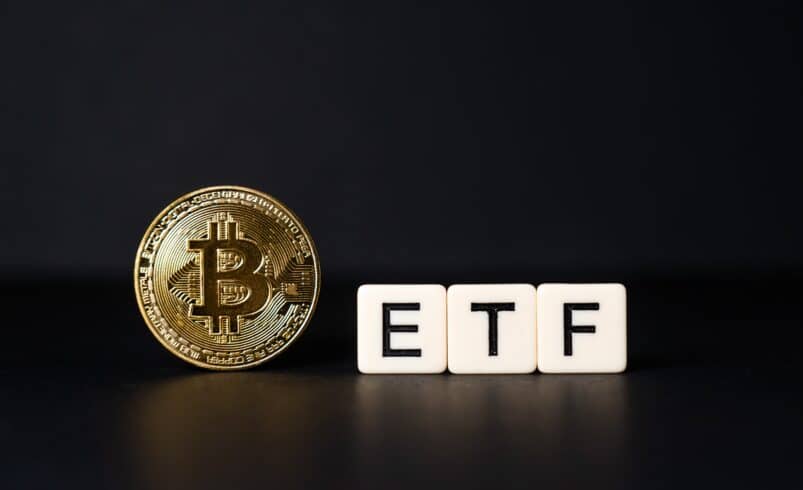Understanding the Pros and Cons of Investing in Bitcoin ETFs

The escalation in enthusiasm for cryptocurrency as an investment
A notable surge in interest in cryptocurrency investments has marked a transformative shift in the financial landscape worldwide. Digital currencies like Bitcoin, Ether, and their contemporaries have gained significant attention, not only for their potential to yield considerable returns but also as a means to counterbalance the instability often seen in traditional financial markets.
Various factors contribute to this heightened interest. The autonomous nature of cryptocurrencies offers enhanced security and independence from traditional banking systems.
Furthermore, the widespread adoption of blockchain technology across different sectors underscores the transformative potential of cryptocurrencies in overhauling financial dealings and payment methodologies.
Moreover, the cryptocurrency market appeals to seasoned and novice investors, drawn by the possibility of swift financial gains. However, this market’s inherent risks and volatility necessitate prudent investment strategies and a thorough understanding of the market dynamics.
The Emergence of Bitcoin ETFs
The growing allure of cryptocurrency investment vehicles, such as cryptocurrency mutual funds and exchange-traded funds (ETFs), including those tied to Bitcoin, signifies a significant evolution in digital asset investments.
Initially, due to the unpredictable nature and regulatory ambiguities surrounding cryptocurrencies, traditional investment vehicles were cautious in embracing them. Yet, these innovative financial instruments’ gradual acceptance and creation reflect the increasing mainstream acceptance of cryptocurrencies.
For instance, crypto ETFs have offered investors a more structured and familiar avenue for cryptocurrency investment, bypassing the complexities associated with managing actual digital currencies. The evolution of Bitcoin ETFs is particularly remarkable. Regulators have repeatedly declined the approval of spot Bitcoin ETFs, citing concerns over volatility and potential market manipulation. Such rejections highlight the cautious stance of regulatory bodies regarding direct exposure to cryptocurrencies.
Nonetheless, the narrative began to change as the demand for cryptocurrency investment grew. Over time, the idea gained momentum, culminating in the eventual approval of spot Bitcoin ETFs. This marks a crucial juncture in integrating cryptocurrencies into conventional investment portfolios.
Direct Bitcoin Investment Versus Other Cryptocurrency Investment Vehicles
Investing directly in Bitcoin entails purchasing and holding the actual Bitcoin via a cryptocurrency exchange. This approach now subjects investors to the price fluctuations of BTC.
In contrast, indirect investment opportunities are available through other cryptocurrency investment vehicles, like mutual funds, exchange-traded funds, or futures. These instruments allow investment in crypto derivatives or a diversified portfolio of cryptocurrencies, offering a more varied and often regulated investment route.
Advantages of Investing in Bitcoin ETFs
Investing in Bitcoin ETFs offers several advantages, especially those seeking cryptocurrency exposure without directly purchasing it. Below are some key benefits of investing in Bitcoin ETFs:
Bitcoin ETFs simplify
The investment process allows investors to buy shares through traditional brokerage accounts. This is particularly beneficial for those who need to be better versed in the complexities of cryptocurrency exchanges. For instance, an experienced stock trader can easily incorporate a Bitcoin ETF into their portfolio using familiar brokerage platforms without understanding the technicalities of crypto wallets and private keys.
Regulatory Framework
Bitcoin ETFs operate within a regulated financial framework, enhancing investor security. This regulated environment ensures transparency and compliance with financial standards, offering a more secure investment option. A notable milestone was the U.S. SEC’s approval of the first Bitcoin futures ETF in 2021, providing a regulated avenue for Bitcoin investment. Furthermore, the approval of spot Bitcoin ETFs on January 10, 2024, marked a significant step in integrating cryptocurrencies into mainstream financial markets.
Portfolio Diversification
Bitcoin ETFs introduce a novel asset class, offering opportunities for portfolio diversification. Including Bitcoin ETFs in an investment portfolio can help spread risk, mainly since Bitcoin often correlates poorly with traditional assets like stocks and bonds. For example, Bitcoin’s price may move independently when traditional markets are struggling, potentially serving as a buffer against market downturns.
Enhanced Liquidity
ETFs generally provide greater liquidity compared to direct cryptocurrency investments. This means that investors can easily buy and sell shares of a Bitcoin ETF at prevailing market prices during trading hours. Such liquidity is crucial as it allows for prompt responses to market changes, a significant advantage in volatile markets.
Tax Efficiency
Bitcoin ETFs may offer more tax-efficient investment options compared to direct Bitcoin investments. This is often due to the unique tax treatment of ETFs, which, in some regions, allows for deferral of capital gains taxes until the investment is liquidated. On the contrary, direct Bitcoin investments might trigger taxable events through actions like selling or trading Bitcoin.
Challenges of Investing in Bitcoin ETFs
While Bitcoin ETFs offer several advantages, they also present specific challenges that investors should consider. Here are the primary disadvantages associated with Bitcoin ETFs:
Price Instability
One of the primary concerns with Bitcoin ETFs is their susceptibility to the cryptocurrency market’s inherent volatility. Rapid and significant price swings are common in Bitcoin and its ETFs. For instance, fluctuations exceeding 10% in a single day are common, posing a challenge for investors unaccustomed to such levels of instability.
Market Risks
Investing in Bitcoin ETFs involves exposure to the cryptocurrency sector’s unique security and regulatory challenges. As a nascent and evolving market, it faces ongoing shifts and regulatory scrutiny across various regions. Furthermore, the market is prone to security risks, including hacking. Regulatory actions like those in significant markets like China have historically led to substantial downturns.
Expense Ratios
Bitcoin ETFs often come with higher fees compared to traditional ETFs. These fees are attributed to the costs involved in managing and securing the underlying digital assets. For instance, a Bitcoin-tracking ETF might impose a higher annual expense ratio than ETFs focusing on stocks or bonds, potentially impacting the overall return on investment. Yet, the introduction of spot Bitcoin ETFs has initiated competition among providers, reducing fees for certain ETFs, some as low as 0.20%.
Indirect Bitcoin Ownership
Bitcoin ETF investors do not hold actual Bitcoin. They invest in a fund that possesses Bitcoin, missing out on some direct ownership benefits, such as using it for transactions or holding it independently, bypassing intermediaries.
Tracking Discrepancy
There might be differences between a Bitcoin ETF’s performance and Bitcoin’s actual market performance, known as tracking error. This discrepancy can arise from fund expenses, obtaining Bitcoin exposure (e.g., using futures contracts), and the timing difference between market transactions and fund rebalancing. For example, a futures-based Bitcoin ETF may not accurately mirror Bitcoin’s real-time price movements, especially in volatile market conditions. Tracking error indicates how well a fund or portfolio replicates the returns of its benchmark index.
Prospects for Bitcoin ETFs
The approval of spot Bitcoin ETFs marks a significant step forward in the evolution of these financial instruments. These ETFs provide investors with a more direct correlation to Bitcoin’s price movements, potentially attracting a broader spectrum of investors, including those who favor regulated financial products but are interested in cryptocurrency. The increasing competition among ETF providers, leading to more affordable fees, makes these investment options more appealing and accessible. The trajectory of Bitcoin ETFs is trending towards greater maturity and integration into conventional investment portfolios.
DISCLAIMER: It's essential to understand that the articles on this site are not meant to serve as, nor should it be construed as, advice in legal, tax, investment, financial, or any other professional context. You should only invest an amount that you are prepared to lose, and it's advisable to consult with an independent financial expert if you're uncertain. To obtain more information, kindly examine the terms of service and the assistance and support resources made available by the issuing or advertising entity. Our website is committed to delivering accurate and unbiased news, yet it's important to note that market conditions may change rapidly. Also, be aware that some (but not all) articles on our site are compensated or sponsored.








